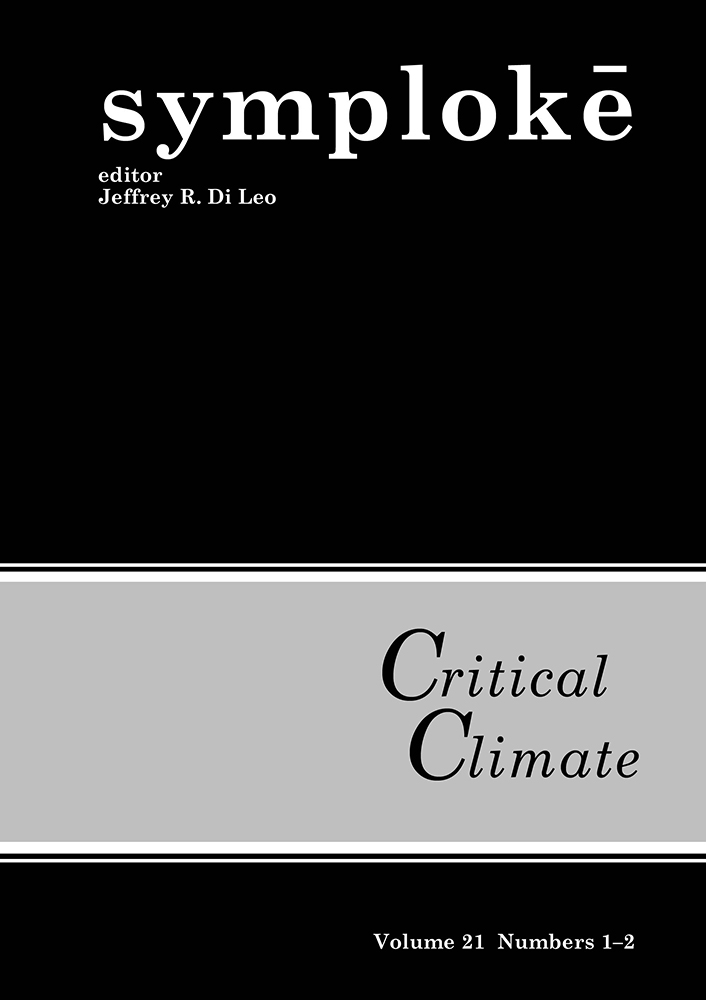
Volume 21, Numbers 1-2

Climate change asks of critical and cultural theorists nothing more or less than a re-evaluation of ourselves, even while it challenges us to put to use the critical tools we have at hand. For one thing, it calls for us to ask how critical concepts like power, ideology, mediation, capital, colonialism, gender, oppression, society, and construction help us to understand the challenges presented by climate change. For another, it asks whether the current crisis wrought by anthropogenic climate change defies or affirms the assumptions that underpin cultural critical theory—and to what extent. Can we respond—and, if so, how—through now established critical modes, such as those signaled by deconstruction, post-structuralism, genre theory, psychoanalysis, Marxism, and science studies, or those practiced under the rubrics of, among others, Agamben, Badiou, Butler, Deleuze, Derrida, Foucault, Habermas, Latour, and Žižek? Or does climate change demand a new kind of theory?
Contents
Adeline Johns-Putra
A New Critical Climate
Timothy Clark
The Deconstructive Turn
Jeffrey R. Di Leo
Can Theory Save The Planet?
Timothy Morton
Poisoned Ground
Claire Colebrook
Framing The End Of The Species
Thomas H. Ford
Aura In The Anthropocene
Matthew Griffiths
Climate Change And The Individual Talent
Deborah Lilley
Theories Of Certain Uncertainty
Maggie Kainulainen
Saying Climate Change
Adeline Johns-Putra
Environmental Care Ethics
Gregers Andersen
Greening The Sphere
Matt Spencer
Doing Science Justice
Brian Lennon
New Stationary States
Karen Pinkus
Thinking Diverse Futures From A Carbon Present
John Miller
Biodiversity And The Abyssal Limits Of The Human
Adam Trexler
Integrating Agency With Climate Critique